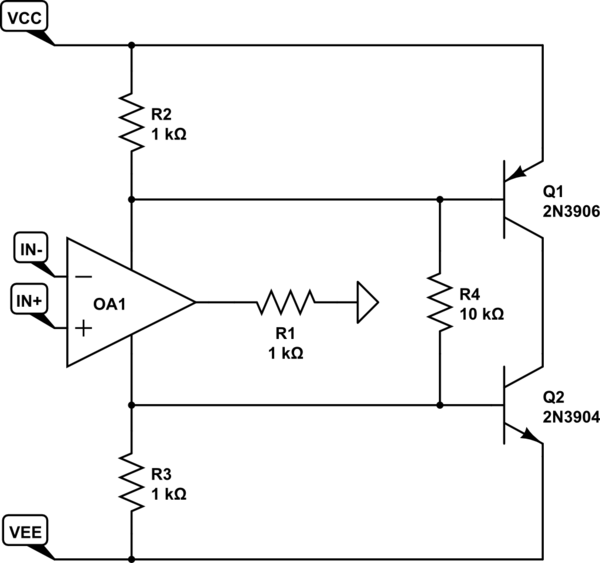The general idea is below, the IN+/- are the differential outputs of the input differential stage. Global feedback assures that these two inputs are identical in equilibrium and thus the ground current of OA1 is ~0.
In this case, the quiescent current of OA1 and R4 current keep the output transistor on the Class-AB knive's edge.
The resistor values still must be finetuned for the amplifier to neither succumb into class B mode nor run hot with excessive dissipation. I guess rail-to-rail ICs have more circuitry to prevent the runaway.


simulate this circuitsimulate this circuit – Schematic created using CircuitLab
